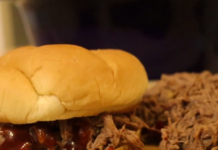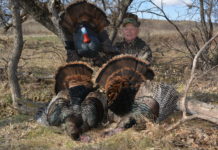The opening day of deer season is just around the corner. If you’re lucky enough to have an elk or antelope tag, the onset of hunting season is even closer. You should be practicing to develop muscle tone and tighten arrow groups.
But fear not, there’s still time to fix any flaws in your form. By the time hunting season arrives, you want to be in a solid shooting routine, so that when opportunity “nocks,” your muscle memory and practice routine will deliver that perfect shot without thinking.
Bill Krnez was the backbone of Bowhunt America for many years. In this post from Archery Talk, he gives his best advice for improving your early-season form.
The best way I’ve found to become a more accurate shooter is to work on your weaknesses.
If you’re an NBA basketball fan, you knowwho Karl Malone is. Malone, who retired after playing eighteen seasons for the Utah Jazz and one for the Los Angeles Lakers, was one of the greatest power forwards ever. Malone was the league’s MVP in 1997 and 1999, was a 14-time All-Star selection, and finished second on the NBA’s all-time scoring list. Malone could do it all. He could rebound, play defense, and score. But there was a time when Karl Malone was just average. He was picked by the Utah Jazz in the thirteenth round of the 1985 NBA draft. Twelve other teams passed on Malone before Utah called his name, and his rookie season was lackluster. His first coach, Frank Layton, called Malone in after that first year and explained, “Karl, you have a unique combination of size and speed, but your shooting is just so-so. You will be just a journeyman, an average big man in the league unless you work on your shooting. Your shooting is your weakness.”
“I’ll go home and work on that during the off-season,” Malone told Layton. Layton had heard the same line from a thousand other players. Most never did anything about it.
But Karl Malone wasn’t most players. He recognized the truth in Layton’s words, worked his tail off during that—and every other—off-season, and became one of the best shooting forwards in NBA history. By the time he had retired, Malone had scored 36,928 points, second only to Kareem Abdul-Jabbar on the all-time NBA scoring list.The biggest difference between Karl Malone and so many other players was his willingness to work on his weakness.
Tell us what you think in the comments section below.



















![The Best Deer Camp Chili [VIDEO] Deer Chili Ingredients, Tomatoes, Chili Spices](/wp-content/uploads/2015/10/Deer-Chili-Deer-Camp-Recipe-218x150.jpg)
![How to Call Elk Early in the Season [VIDEO]](/wp-content/uploads/2016/08/byers003-218x150.jpg)




![Idiots Disturb Hunter: How Would You Have Handled It? [VIDEO]](/wp-content/uploads/2015/10/DSC00110-e1474487693878-100x70.jpg)
![Albino Buck Shocked to Shed His Antlers [VIDEO]](/wp-content/uploads/2015/10/AlbinoDeer-100x70.jpg)